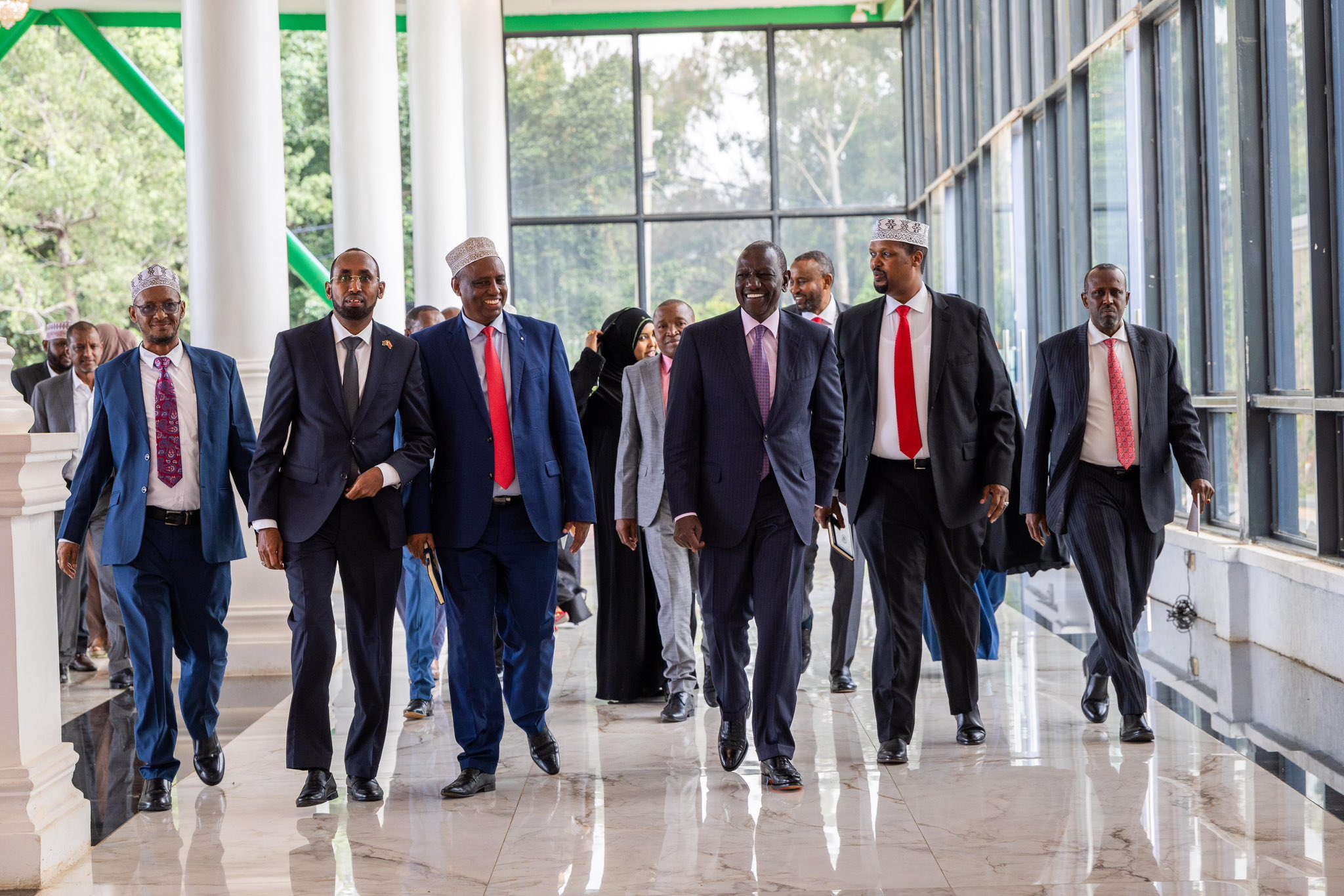
Ruto pitches comprehensive animal vaccination in talks with pastrolist caucus » Capital News
NAIROBI, Kenya, Nov 28 – President William Ruto has cited ineffective livestock vaccinations in the past limited implementation in selected parts of the country as a reason for a renewed push by his administration next year.
He promised a more comprehensive and efficient vaccination drive.
Ruto who spoke during a meeting with members of the United Democratic Movement (UDM) party at State House on Thursday, defended animal vaccination as a critical measure for controlling livestock diseases and improving the health of breeds across the nation.
“The animal vaccination program we will roll out in January 2025 is designed to effectively control livestock diseases and ensure healthier breeds. In the past, this exercise has been inefficient because it was limited to selected regions,” Ruto said.
He added that the new program marks the beginning of increased government investment in the livestock sub-sector, aiming to unlock its full potential and enhance its contribution to the economy.
This announcement comes amid reports alleging that the government may have ulterior motives for advancing the vaccination initiative.
A section of Azimio leaders, led by Wiper Party leader Kalonzo Musyoka, had urged Kenyans to reject the proposal, claiming the vaccines could alter the genetic structure of livestock, potentially causing them to “cease emitting methane gas into the atmosphere.”
Kalonzo warned that the program could have severe health and environmental repercussions.
“The program, set to roll out nationwide in the coming months, [is being] marketed as part of the government’s environmental protection efforts. However, this proposal reeks of a sinister foreign agenda and raises serious concerns for pastoralist communities and the nation at large,” said Kalonzo.
Disease control
In response, the government has strongly refuted these claims, emphasizing the scientific basis of the vaccination program as a proven method for controlling diseases like foot-and-mouth.
Christopher Wanga, Director of Livestock Policy, Research, and Regulations at the State Department for Livestock, called on political leaders and the public to support the initiative, warning that disease outbreaks could damage both local and international market access for livestock products.
“We cannot afford to dismiss science. Just as we embraced COVID-19 vaccination, the same principle applies to protecting our livestock,” Wanga stated during the global animal health conference organized by the World Organization for Animal Health (WOAH) in Nairobi.
He underscored the importance of collaboration among governments, veterinarians, and farmers to ensure the program’s success.
The national vaccination initiative, announced by President Ruto, aims to vaccinate 22 million cattle against foot-and-mouth disease (FMD) and 50 million sheep and goats against Peste des Petits Ruminants (PPR).
Agriculture and Livestock Development Cabinet Secretary Andrew Karanja highlighted that the program will rely on vaccines produced locally by the Kenya Veterinary Vaccines Production Institute (KEVEVAPI), a state corporation under his ministry.
Foot-and-mouth disease and other transboundary livestock ailments have long posed significant threats to Kenya’s livestock industry, often causing substantial economic losses.
The campaign aims to mitigate such risks while strengthening the dairy sector, which remains a cornerstone of Kenya’s agricultural economy.
About The Author